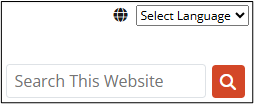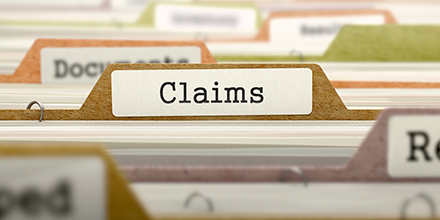Changes to physical therapy, occupational therapy and speech coverage

North Dakota Medicaid will no longer be enrolling therapy assistants.
Physical therapy assistants
Effective for dates of service July 1, 2025, and forward, ND Medicaid will require services rendered by a certified physical therapy assistant (PTA) to be identified on the claim using the CQ modifier. The PTA must be listed as the rendering/servicing provider in the medical records. The medical records must contain the signature of both the supervising provider and the rendering provider.
The supervising NPI and taxonomy must be listed as the rendering provider (CMS 1500 claim form or 837p) or attending provider on the claim (UB 04 claim form or 837i) provider on the claim.
Occupational therapy assistants
Effective for dates of service July 1, 2025, and forward, ND Medicaid will require services rendered by a certified occupational therapy assistant (OTA) to be identified on the claim using the CO modifier. The OTA must be listed as the rendering/servicing provider in the medical records. The medical records must contain the signature of both the supervising provider and the rendering provider.
The supervising NPI and taxonomy must be listed as the rendering provider (CMS 1500 claim form or 837p) or attending provider on the claim (UB 04 claim form or 837i) provider on the claim.
Speech therapy assistants
Effective for dates of service July 1, 2025, and forward, ND Medicaid will require services rendered by a certified speech language pathology assistant (SLPA) to be identified on the claim using the UB modifier. The SLPA must be listed as the rendering/servicing provider in the medical records. The medical records must contain the signature of both the supervising provider and the rendering provider.
The supervising NPI and taxonomy must be listed as the rendering provider (CMS 1500 claim form or 837p) or attending provider on the claim (UB 04 claim form or 837i) provider on the claim.
Translate my Medicaid!
 ND Medicaid serves many members who are new to the United States (U.S.) and North Dakota, speaking languages other than English. Here are a few ways we support our members:
ND Medicaid serves many members who are new to the United States (U.S.) and North Dakota, speaking languages other than English. Here are a few ways we support our members:
We have a Member Engagement and Resources webpage offering helpful information for members including prompts to translate our entire website to a preferred language!
Our newest webpage, Understanding Health Care in the U.S., breaks down the health care system in the U.S.
We are designing a flyer encouraging members to learn more about Medicaid in their preferred language.
We cover ASL interpreter and language translator services during Medicaid-covered appointments. You can help arrange these services for your patients.
Members can get free interpreter services to understand notices and get help over the phone, by calling our Customer Support Center:
Phone: 866-614-6005 or 701-328-1000
711 (TTY)
Fax: 701-328-1006
Mail: Customer Support Center
P.O. Box 5562
Bismarck ND 58506
Email: applyforhelp@nd.gov
Get ready for the 2025-2026 school year: Convert sports physicals to wellness visits

Let’s ensure Medicaid-eligible teenagers are getting preventive wellness services. You can do this by encouraging families to schedule a ND Medicaid wellness visit when they call your office for a sports physical if the youth hasn’t had a wellness visit in the last year.
Sports physicals can easily be done as part of a wellness visit. The sports physical code covered by ND Medicaid is CPT© code 99429 along with ICD-10 code Z02.5
To find information, including the sports physical form, visit the North Dakota High School Activities Association website. Learn more about converting sports physicals to a wellness check on Medicaid’s wellness visit webpage.
Scheduling ahead helps to stay ahead of health issues
Encouraging parents/patients to schedule their next appointments during their current visit helps stay ahead of potential health issues and ensure that recommended wellness visits and immunizations occur as scheduled. Consult the Bright Futures well-child periodicity schedule for details of age-appropriate visits.
Provider enrollment reminders
Flattening forms
ND Medicaid is requesting that providers flatten PDF forms before completing. To learn how to flatten a file, visit How to flatten a PDF tutorial.
Service location address
When completing the application requirements, the service location address must be listed on the forms. The service location address is where services are being provided.
Classic Optical's new portal

We are excited to announce that Classic Optical’s new portal will be launching in North Dakota during the last week of June. In preparation for this transition, Classic Optical will be providing comprehensive training materials and offering scheduled online training sessions. In the coming weeks, providers will receive further information regarding the portal launch, along with available training dates and times for registration.
Pharmacy updates

Diabetes coverage
Effective March 3, 2025, insulin lispro pens are preferred.
- Vials require prior authorization to verify a member has an insulin pump.
- A prior authorization is not required for insulin lispro vials when used with an Omnipod. If a member uses an Omnipod insulin pump, electronic lookback will confirm pump use within 90 days prior to the insulin claim date of service.
Effective May 1, 2025:
Dexcom will not require prior authorization for members using insulin. Electronic lookback will confirm continuous insulin use within 90 days prior to the Dexcom sensor claim date of service. If the electronic lookback doesn’t confirm continuous use, submit a prior authorization.
For more information, refer to the Pharmacy Coverage Policy manual.
Effective July 1, 2025:
- Januvia, Janumet and Janumet XR will require prior authorization.
- Tradjenta and Jentadueto will not require prior authorization.
Start transitioning patients now to avoid disruption. For more information, visit the Pharmacy Coverage Policy manual.
Renal HCPCS code drug coverage updates
Effective April 1, 2025, drugs billed with HCPCS codes that are specific for end stage renal disease in the description will require prior authorization to rule out Medicare eligibility if a member is on renal dialysis or has an end stage renal disease diagnosis. Start transitioning patients now to avoid disruption.
For more information, refer to the Pharmacy Coverage Policy manual and use the Procedure Code Look-up Tool to search for the HCPCS codes that require prior authorization.
Respiratory drug coverage updates
Effective Oct. 1, 2025, Advair Diskus and Advair HFA will require prior authorization.
Dulera does not require prior authorization. Dulera contains formoterol and can be used for maintenance and reliever therapy as recommended in the asthma guidelines. To support this use, two Dulera inhalers are allowed per 30-day supply.
Start transitioning patients now to avoid disruption.
Medicaid member feedback summary

North Dakota Health and Human Services is hosting multiple events to better connect with our current and recent members and their family caregivers.
We asked for their feedback on ND Medicaid and their recommendations for the Medicaid Member Engagement Committee’s (MMEC) best practices during our May 6 virtual listening.
We had over 120 attendees for our listening session where we heard feedback on what areas of ND Medicaid need our attention most, how to best represent the member body within the MMEC and more!
During the listening session, 54 members responded to survey poll questions, highlighting the eligibility process, dental services and non-emergency medical transportation as top priorities.
We also learned that our members are looking forward to the upcoming focus group and would like the chance to share more through another survey and join the MMEC.
Learn more about this work, including an upcoming focus group opportunity on June 13, on the Medicaid member feedback webpage.
We look forward to the feedback we gather from our survey and our upcoming focus group on June 13, 2025.
Claims Corner

Understanding the correct use of drug waste Modifier JW
The JW Modifier was created by the Centers for Medicare and Medicaid Services (CMS) to account for drug wastage. Correctly applying this modifier helps providers receive appropriate reimbursement and maintain regulatory compliance.
What is Modifier JW?
Modifier JW is a billing code used on health care claims to indicate the amount of a drug that was discarded and not administered to a patient. It applies specifically to single-dose vials or packages where a portion of the drug remains after the prescribed dose is given and cannot be used for another patient.
Key Points:
- JW = “Drug amount discarded/not administered to any patient.”
- Only applies to single-dose containers.
- Does not apply to multi-dose vials, as they are intended for multiple uses.
When to Use Modifier JW
Correct Use Criteria:
1. Drug from a single-dose vial is partially used:
- Example: A vial contains 100 mg of a drug.
- The patient receives only 70 mg.
- The remaining 30 mg is discarded.
- The 70 mg should be billed on one line without a modifier.
- The 30 mg should be billed on a separate line with the JW modifier.
2. The amount of wasted drug must be documented:
- Medical records should clearly state the amount administered and the amount discarded.
- Include lot number, expiration date, and reason for discard if applicable.
3. Billing units must align with the drug’s HCPCS code:
- If the HCPCS code for the drug is billed in 10 mg units, the 70 mg would be billed as 7 units and the 30 mg discarded as 3 units with the JW modifier.
When Not to Use Modifier JW
- Multi-dose vials: Because they are intended for multiple uses, any remaining amount is not considered "wastage" in the same sense.
- No drug discarded: If the entire contents of the single-dose vial are administered, JW should not be used.
- Shared vials: If a vial is shared among patients under proper sterile technique, do not use JW for remaining amounts.
LCD/NCD Updates
Effective for dates of service on and after July 1, 2025, ND Medicaid will begin editing professional and institutional claims against 14 additional Noridian Local Coverage Determinations (LCDs) with companion Billing and Coding Articles and 11 additional CMS National Lab Coverage Determinations (NCDs).
LCDs
| L34010 | Treatment of Varicose Veins of the Lower Extremities |
| L35457 | Nerve Blockade for Treatment of Chronic Pain and Neuropathy |
| L36204 | Spinal Cord Stimulators for Chronic Pain |
| L36526 | Nerve Conduction Studies and Electromyography |
| L36680 | Lab: Bladder/Urothelial Tumor Markers |
| L36859 | Trigger Point Injections |
| L37068 | Lab: Coenzyme Q10 (CoQ10) |
| L37088 | Transcranial Magnetic Stimulation (TMS) |
| L37360 | Peripheral Nerve Stimulation |
| L37618 | Lab: Cystatin C Measurement |
| L37622 | MDS FISH |
| L38700 | Computed Tomography Cerebral Perfusion Analysis (CTP) |
| L38803 | Facet Joint Interventions for Pain Management |
| L39464 | Sacroiliac Joint Injections and Procedures |
Lab NCDs
| 190.2 | Blood Glucose Testing |
| 190.14 | HIV |
| 190.19 | Collagen Crosslinks |
| 190.24 | Digoxin |
| 190.28 | CA 125 |
| 190.29 | Tumor Antigen by Immunoassay CA15-3/CA27.29 |
| 190.3 | Tumor Antigen by Immunoassay CA19-9 |
| 190.31 | Prostate-Specific Antigen |
| 190.32 | Gamma Glutamyl Transferase |
| 190.33 | Hepatitis Panel/Acute Hepatitis Panel |
| 190.34 | Fecal Occult Blood Test |
Automated Voice Response System (AVRS)
ND Medicaid’s Automated Voice Response System (AVRS) permits enrolled providers to readily access detailed information on a variety of topics using a touch-tone telephone. AVRS options available include:
- Member Inquiry
- Payment Inquiry
- Service Authorization Inquiry
- Claims Status
AVRS Access Telephone Numbers (available 24/7)
Toll-Free: 877-328-7098
Local: 701-328-7098
For more details, visit the AVRS PDF.
Claims attachments
When submitting a claims attachment for a specific claim, the attachment must be received within 14 days of the date ND Medicaid receives the claim. All attachments must have the SFN 177 or the web portal confirmation page attached to the documentation.
Billing tips for all providers billing via paper claim submission
- Hard copy claims, adjustments and attachments must meet the following criteria to ensure that all documents can be scanned and processed in a timely manner. Documents not meeting the following criteria will be returned to the provider.
- Use only black (preferable) or blue ink. Do not use red ink.
- Do not staple documents together. Use paper clips.
- If you are submitting folded claims, one of the “thirds” should be larger than the other two. This will leave a small amount of space in the envelope that will allow our envelope opening equipment to cut open the envelope without damaging the claims. Please do not fold claims into equal sections.
- Do not use highlighter or liquid white out.
- Documents cannot have any dark smudges, blackouts, or dark print that runs together.
- Do not place any labels, stickers, or tape on documents.
- Do not submit two-sided documents.
Billing provider taxonomy mismatch
A friendly reminder to make sure when filing claims to ND Medicaid that you use the correct taxonomy code associated with the billing provider. ND Medicaid has seen an uptick in claims denying for this reason.
Procedure code required for revenue codes
Hospital Services
As a reminder, effective Jan. 1, 2023, ND Medicaid now requires a valid HCPCS code for Revenue Codes on all inpatient and outpatient services. For more information, see the Hospital Services manual.
Federally Qualified Health Centers
As a reminder, effective July 1, 2024, all FQHCs must now report all services provided during the encounter visit on the claim. Services that do not generate an encounter payment must be submitted for quality reporting and informational purposes.
For each service, submit a separate claim line with the appropriate revenue code and procedure code along with the date of service. A provider must submit each claim line with their usual charges for the services. For more details, see the FQHC manual.
Rural Health Clinic Facilities
As a reminder, effective July 1, 2024, all RHCs must now report all services provided during the encounter visit on the claim. Services that do not generate an encounter payment must be submitted for quality reporting and informational purposes.
For each service, submit a separate claim line with the appropriate revenue code and procedure code along with the date of service. A provider must submit each claim line with their usual charges for the services. For more details, see the RHC manual.
Look-up tool
ND Medicaid is excited to announce the launch of a new Procedure Code Look-Up Tool. This web-based feature was designed to streamline your workflow by allowing you to search by CPT©, CDT© or HCPCS code to provide at-a-glance information on coverage, current rates, telehealth applicability, service authorization information, claim requirements and more.
As part of this launch, the following Excel and PDF files have been removed from the website.
Provider guidelines, manuals and policies
- Codes Requiring Service Authorization
- Codes Requiring Ordering, Referring, or Prescribing NPI
- CDT Codes Requiring Tooth Number/Quadrants
- Telehealth Approved Services
Durable medical equipment providers
- DME Purchase Code Limits and Restrictions
- DME Rental Code Limits and Restrictions
